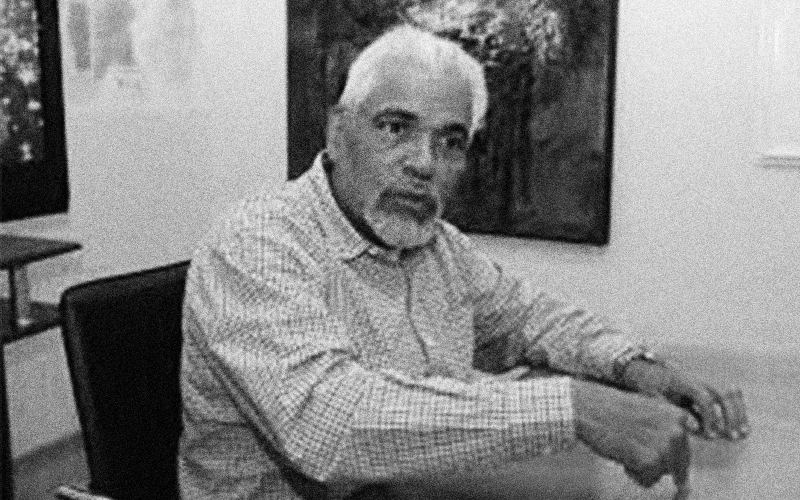

From 2012 to 2015, the truck company Kamaz led the shipment records from Russia to Venezuela. Chassis, engines and a range of spare parts entered the country continuously through the local intermediary J.C. International 2004, C.A., a company where the latest partners are also engaged in the business of meat distribution. For years, the Venezuelan government and Kamaz have promised the construction of a car assembly plant in the country but it never materialized, as well as the idea of filling the roads of Venezuela with vehicles of this make.
|
Getting your Trinity Audio player ready...
|
Two rows of yellow, blue and red trucks, perfectly arranged one after the other, are shown on broadcast television. Although the colors allude to the Venezuelan flag, little they have of Venezuelan production. If the yellow color were changed to white, it would be more appropriate to their actual place of origin, Russia.
"These trucks come to pay tribute to performance and efficiency," explained Hugo Cabezas, who for in 2012, served as governor of the state of Trujillo, while receiving 22 Russian Kamaz-type trucks to be used in Gran Misión Vivienda Venezuela (Housing Mission) and Cayapa Mission, which deals with agricultural roads. "With them we are saving up to 65% of the cost in the construction of houses, as well as the construction and restoration of rural roads," added Cabezas, who saw the arrival of transport as a way to solve the main problems of the region.
This was not the last time that trucks of this make arrived in Venezuela, but it was one of the few seen in official deliveries. From 2012 to 2015, the largest number of exports from Russia to Venezuela were made by JSC Foreign Trade Kamaz, as evidence in the Russian customs records leaked to a consortium of journalists in Eastern Europe known as the Organized Crime and Corruption Reporting Project (Occrp), and then delivered to Armando.info.
"We stopped receiving these shipments in 2014. In 2015 we only brought spare parts and tires"
In that 3-year period, Venezuela received more merchandise from the European country, with Kamaz stamp, than products with military purposes. Two companies were the recipients of the material: Suministros Venezolanos Industriales C.A. (Suvinca) and J.C International 2004, C.A., which is considered the official partner of the Russian company in Venezuela. Both received, between 2012 and 2015, over 800 shipments.
"We imported chassis of the vehicles that we assembled with the help of Venezuelan bodywork shops. We stopped receiving these shipments in 2014. In 2015 we only brought spare parts and tires. But the government owes us 10 imports that were made. Now, imports are held up,” explains Jennifer Camargo by phone, on behalf of J.C International 2004.
According to Life magazine in Russia, the problem with the payment of Venezuelan contracts had been discussed at an intergovernmental level. During the first months of 2016, the Russian and Venezuelan delegations held meetings on the payment of debts owed for the delivery of Kamaz materials. And in December 2016, during the negotiations in Caracas, the Venezuelan side announced its willingness to settle the debts for an amount of 16 million dollars for equipment and spare parts supplied. At that time, the government of Nicolás Maduro promised to pay 8 million dollars in February 2017 and expedite payments for the rest of the debt.
The partner of Kamaz in Venezuela, J.C International 2004, according to the most recent information of the National Registry of Contractors has Jaime Cabezas Peñaranda and Yaduris Gómez Sabalza as representatives, who are also part of a company registered in Panama with the name of Camiones Kamaz Latinoamérica. They are also partners of the national company Corpvenca, Venezuelan Meat Corporation, with whom they share an address in Santa Rosa de Lima area, east of Caracas. The team of Armando.info went to that place but did not find a trace of these companies.
Kamaz was founded in Russia in 1969. The company is a leader in the Russian truck market and ranks eighth in the world in terms of diesel engine production. It supplies its products to 43 countries worldwide, including Venezuela. According to its website, "The modern KAMAZ equipment works on any road and under any climate conditions, in the tropics, desert areas and highlands." That is why, since a few years ago, they are trying to reorient themselves in export supplies to Latin American countries and establish assembly companies there.
Since 2007, there have been discussions about the creation of an assembly plant in Venezuela. In March 2010, representatives of Kamaz and members of the Mayor's Office of Valencia met to sign the agreement that would be the starting point of the construction of the factory.
"As the Bolivarian mayor of Valencia, I want to promote the project for the prosperity of the municipality, in which workers will also participate in the partnership of that factory, as a socially owned company," Edgardo Parra Oquendo said when he was still in charge of the government of the capital of Carabobo.

Finally, the project was not promoted and the engines of these vehicles could not be start up. In May 2013, the installation of an assembly plant in the industrial zone Agustín Rivero de Independencia, in San Felipe, state of Yaracuy, in the center-north of the country, was again announced in the media. At that time, the representative of Kamaz in Venezuela, Luis Barrios, explained that the investment of this work would be 2 million dollars and would be executed in two years. The plan included the construction of 5,000 meters of warehouses, installation of technology for the three assembly lines, and 390 direct jobs.
Once again the plans were only promises. The only assembly plant that works in this place since December 2015, is the Yutong bus company operated by China.
The information handled this year is that the plans of the assembly plant remain but the city where it will be installed changed. According to representatives of J.C International 2004, the delays and continuous changes of places have arisen due to problems to obtain building permits. "The development project is ready. We have the plans and even personnel in the field. The place will be the duty-free zone of Falcon," explains Camargo.
Three years after the delivery of Russian trucks by Hugo Cabezas, in 2012, in the state of Trujillo, the Bolivarian Government of Aragua made an act with the then governor Tareck El Aissami, where 68 Kamaz buses were given to transporters of the region.
These buses had a capacity for 32 passengers, equipped with air conditioner for suburban routes, and no air for urban routes, with the expectation of benefitting more than 20,000 users daily. El Aissami noted, at that time, that company Kamaz had scheduled the start of operations in two dealers with service capacity of 10 transport units, in order to ensure a better post-sale service.
Like the assembly plant, this promise was also forgotten. Today, 75% of the general transport of Aragua is paralyzed due to lack of spare parts, as the president of the United Front of Transport, Elpidio Mora reported to the press. It is common to see passengers using cargo trucks as means of transportation that are not authorized for that, and ironically, none is a Kamaz truck.
It is not common to see these trucks and buses on the streets of the Venezuelan capital, and Kamaz dealers seem to have disappeared. Ignorance about the brand is a common thing among most of the transport drivers inquired for this work.
Despite of the failed experiences of Venezuela with Russia, like the idea of sending orchids to the European country, the volume of trade between the two countries in 2016 amounted to more than 336 million dollars, including Russian exports (334, 2 million dollars) and imports (1.8 million dollars), according to the Russian Federal Customs Service.
Russian exports to Venezuela consist of machinery, equipment, vehicles, metals and their manufacture; chemical industry products; food products and agricultural raw materials; wood products and pulp and paper. Still, it does not seem to be enough.
The Venezuelan government has resorted to a myriad of trading intermediaries to provide imported merchandise for the Claps, its star food aid program. With massive purchases in international markets, it poorly satisfies the hunger of popular sectors while safely feeding the financial flows that end in bank accounts in Hong Kong or Switzerland.
In Mexico, there is a long tradition of cheating in the supply of dairy products packaged for social programs. Hence, it should not be surprising that the Venezuelan corruption had found in that country the perfect formula to include in the so-called CLAP Boxes a paste purchased at auction price as cow's powdered milk. For a mysterious reason, ghostly or barely known companies are the ones monopolizing purchase orders from Venezuela.
The Venezuelan fishing fleet and the seafood processing industry went under due to massive imports from the Government. Ironically, the shot underneath the waterline was fired by military officers in charge of overseeing the national sovereignty. A subsidiary of the Savings Bank of the Army imported tuna and other goods. The business was shielded with guaranteed access to Government currencies at preferential rates and alliances with the new business class.
The accomplished election of the National Constituent Assembly has flourishing businesses between Mexico and Venezuela in suspense. The country of North America has considered adhering to the trade sanctions announced by Washington, now that the chavista regime will cease the Parliament elected in 2015 and will initiate a raid against the political opposition. If the decision materializes, it will be a blow to the flourishing trade exchange between the two countries, which has allowed stocking the Local Supply and Production Committees, President Nicolás Maduro’s emergency plan to face shortages and the discontent of the population with Mexican supplies. It is a silent business, marked by opacity, from which entrepreneurs linked to the Venezuelan regime, as Samark López and Alex Saab, have benefited.
When Vice President Delcy Rodríguez turned to a group of Mexican friends and partners to lessen the new electricity emergency in Venezuela, she laid the foundation stone of a shortcut through which Chavismo and its commercial allies have dodged the sanctions imposed by Washington on PDVSA’s exports of crude oil. Since then, with Alex Saab, Joaquín Leal and Alessandro Bazzoni as key figures, the circuit has spread to some thirty countries to trade other Venezuelan commodities. This is part of the revelations of this joint investigative series between the newspaper El País and Armando.info, developed from a leak of thousands of documents.
Leaked documents on Libre Abordo and the rest of the shady network that Joaquín Leal managed from Mexico, with tentacles reaching 30 countries, ―aimed to trade PDVSA crude oil and other raw materials that the Caracas regime needed to place in international markets in spite of the sanctions― show that the businessman claimed to have the approval of the Mexican government and supplies from Segalmex, an official entity. Beyond this smoking gun, there is evidence that Leal had privileged access to the vice foreign minister for Latin America and the Caribbean, Maximiliano Reyes.
The business structure that Alex Saab had registered in Turkey—revealed in 2018 in an article by Armando.info—was merely a false start for his plans to export Venezuelan coal. Almost simultaneously, the Colombian merchant made contact with his Mexican counterpart, Joaquín Leal, to plot a network that would not only market crude oil from Venezuelan state oil company PDVSA, as part of a maneuver to bypass the sanctions imposed by Washington, but would also take charge of a scheme to export coal from the mines of Zulia, in western Venezuela. The dirty play allowed that thousands of tons, valued in millions of dollars, ended up in ports in Mexico and Central America.
As part of their business network based in Mexico, with one foot in Dubai, the two traders devised a way to replace the operation of the large international credit card franchises if they were to abandon the Venezuelan market because of Washington’s sanctions. The developed electronic payment system, “Paquete Alcance,” aimed to get hundreds of millions of dollars in remittances sent by expatriates and use them to finance purchases at CLAP stores.
Scions of different lineages of tycoons in Venezuela, Francisco D’Agostino and Eduardo Cisneros are non-blood relatives. They were also partners for a short time in Elemento Oil & Gas Ltd, a Malta-based company, over which the young Cisneros eventually took full ownership. Elemento was a protagonist in the secret network of Venezuelan crude oil marketing that Joaquín Leal activated from Mexico. However, when it came to imposing sanctions, Washington penalized D’Agostino only… Why?
Through a company registered in Mexico – Consorcio Panamericano de Exportación – with no known trajectory or experience, Joaquín Leal made a daring proposal to the Venezuelan Guyana Corporation to “reactivate” the aluminum industry, paralyzed after March 2019 blackout. The business proposed to pay the power supply of state-owned companies in exchange for payment-in-kind with the metal.